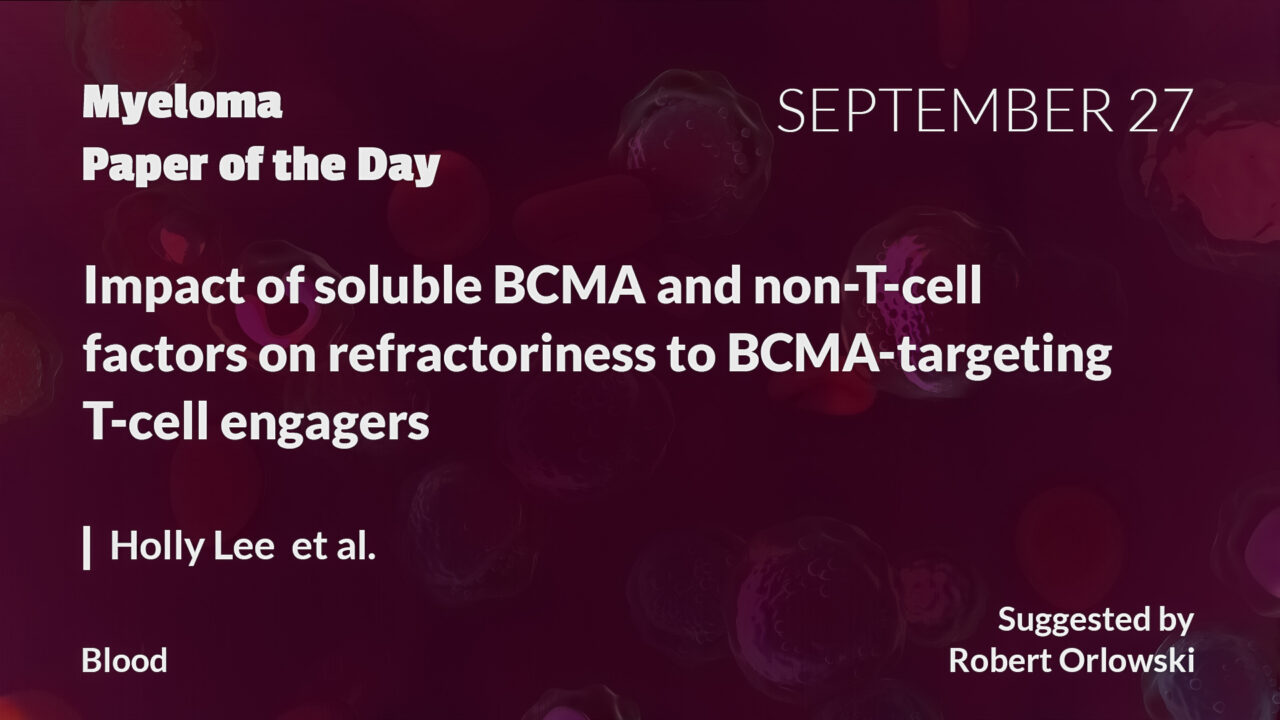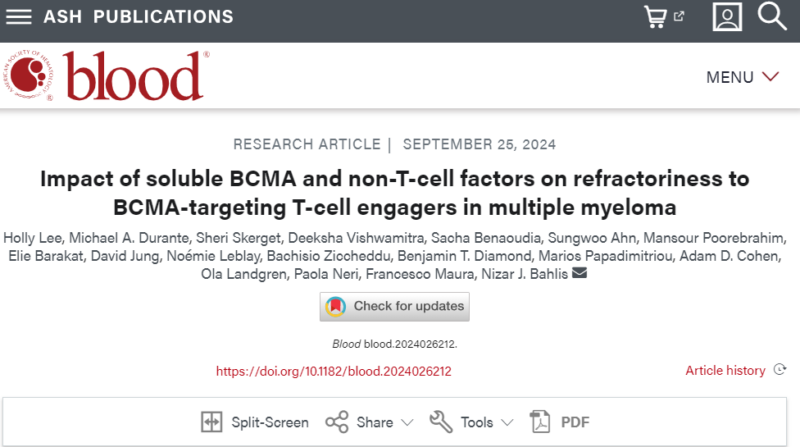
Myeloma Paper of the Day, September 27th, suggested by Robert Orlowski
Robert Orlowski shared on X:
“Myeloma Paper of the Day: Soluble BCMA may independently predict primary refractoriness to anti-BCMA therapies, along with tumor burden, surface BCMA antigen density, and TCE dose intensity when administering anti-BCMA TCEs.”
Source: Robert Orlowski/X
Authors: Holly Lee, Michael A. Durante, Sheri Skerget, Deeksha Vishwamitra, Sacha Benaoudia, Sungwoo Ahn, Mansour Poorebrahim, Elie Barakat, David Jung, Noémie Leblay, Bachisio Ziccheddu, Benjamin T. Diamond, Marios Papadimitriou, Adam D. Cohen, Ola Landgren, Paola Neri, Francesco Maura, Nizar J. Bahlis.

Other posts featuring Robert Orlowski on OncoDaily.
Robert Orlowski, M.D., Ph.D., holds multiple positions at The University of Texas, MD Anderson Cancer Center including Chairman, Ad Interim Director of Myeloma, and Professor of Medicine in the Departments of Lymphoma/Myeloma and Experimental Therapeutics within the Division of Cancer Medicine. Additionally, he chairs the SWOG Barlogie/Salmon Myeloma Committee, which is part of the National Clinical Trials Network, dedicated to advancing new therapies and understanding the biology of myeloma.
Dr. Orlowski’s expertise lies in both clinical practice and scientific research, with a particular focus on translating laboratory discoveries into effective treatments for patients. He investigates drug resistance mechanisms in myeloma and seeks to identify predictive biomarkers for treatment response. Notably, his past contributions include leadership roles in developing proteasome inhibitors like bortezomib and carfilzomib, as well as monoclonal antibodies such as daratumumab and elotuzumab.
-
ASCO Annual Meeting
May 30 - June 4, 2024
-
Yvonne Award 2024
May 31, 2024
-
OncoThon 2024, Online
Feb. 15, 2024
-
Global Summit on War & Cancer 2023, Online
Dec. 14-16, 2023
